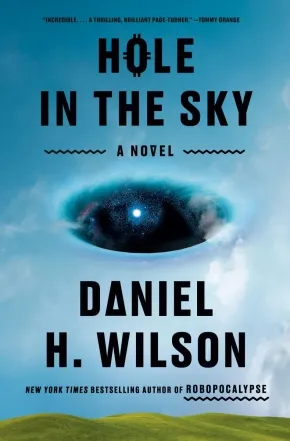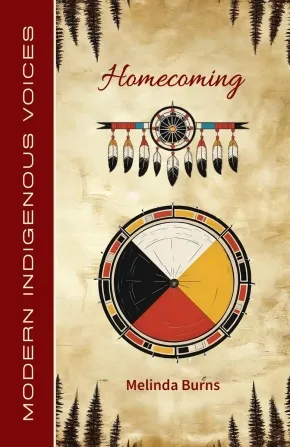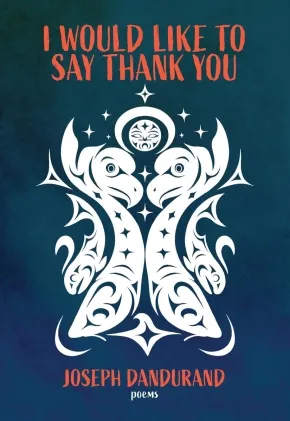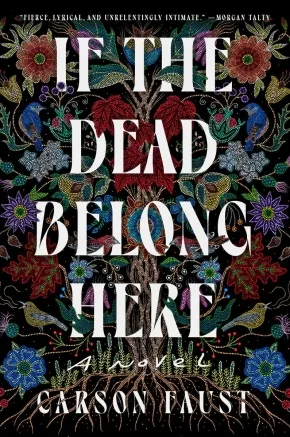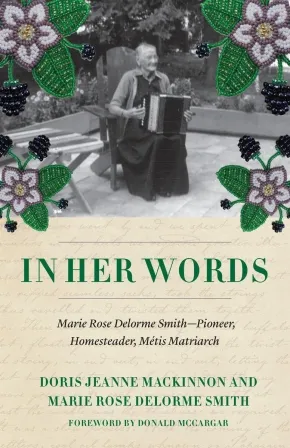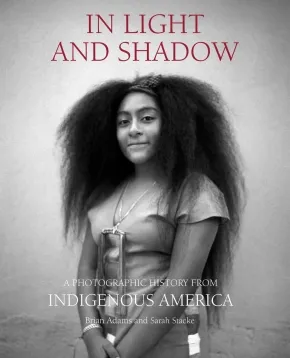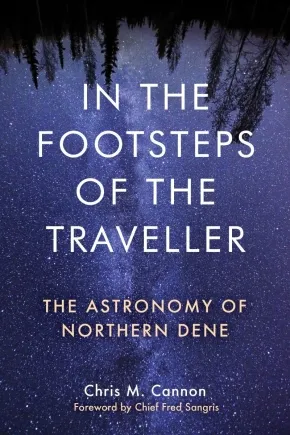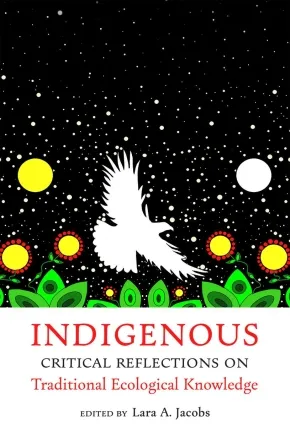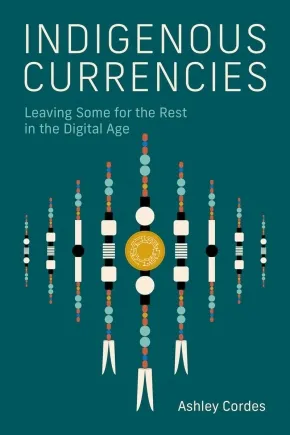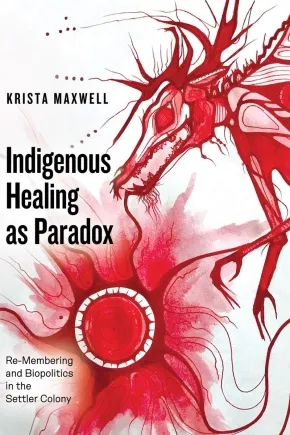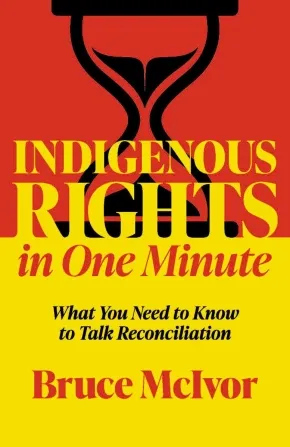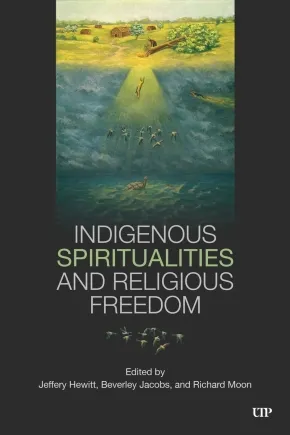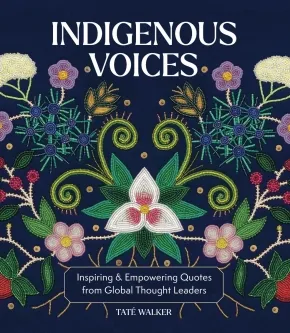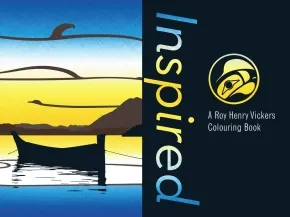
Indigenous Peoples
61
-
75
of
1370 Results;
Sort By
Go To
of 92
Hole in the Sky: A Novel
$39.99
Format:
Hardcover
Text Content Territories:
Indigenous American; Native American; Cherokee;
ISBN / Barcode: 9780385551113
Synopsis:
Synopsis:
A Native American first contact story and gripping thriller from the New York Times bestselling author of Robopocalypse
"Thrilling and personal... an important addition to the landscape of science fiction."—Pierce Brown, #1 New York Times bestselling author of Red Rising
"Hole in the Sky is mind-bending… indigenous knowledge collides with science fiction in a thrilling page-turner."—Sterlin Harjo, filmmaker and writer of Reservation Dogs
On the Great Plains of Oklahoma, in the heart of the Cherokee Nation, a strange atmospheric disturbance is noticed by Jim Hardgray, a down-on-his-luck single father trying to reconnect with his teenage daughter, Tawny. At NASA’s headquarters in Houston, Texas, astrophysicist Dr. Mikayla Johnson observes an interaction with the Voyager 1 spacecraft on the far side of the solar system, and she concludes that something enormous and unidentified is heading directly for Earth. And in an undisclosed bunker somewhere in the United States, an American threat forecaster known only as the Man Downstairs intercepts a cryptic communication and sends a message directly to the president and highest-ranking military brass: “First contact imminent.”
Daniel H. Wilson’s Hole in the Sky is a riveting thriller in the most creative tradition of extraterrestrial fiction. Drawing on Wilson’s unique background as both a threat forecaster for the United States Air Force and a Cherokee Nation citizen, this propulsive novel asks probing questions about nonhuman intelligence, the Western mindset, and humans’ understanding of reality.
Reviews
“Incredible... Hole in the Sky is not only a thrilling, brilliant page-turner, its pages also turned me into the kind of reader I always want to be—deeply involved and curious about the world and the story unfolding before me, as if by magic—the kind of reader who can’t stop reading, who dreads the book coming to an end even while I can’t stop making my way toward it, who goes back and starts all over to figure out how it was done. Here we have a highly original premise about alien contact—no small feat unto itself—which also manages to seamlessly fold in Indigenous lives and knowledge. Every character here is alive, and there are so many stunning sentences I had to stop underlining. The story is killer. I love it. Run don’t walk to read this book.”—Tommy Orange, New York Times bestselling author of There There and Wandering Stars
“Hands down one of the best books I’ve read in a couple of years. Daniel H. Wilson has crafted a technotradish ride into the future in the most harrowing and engaging ways imaginable. Tightly tuned, sharply researched, and warm in all the best ways, you’ll want to clear your schedule because this is a sit-down-and-read-the-whole-thing-right-now kind of book. Bravo, Mr. Wilson!”—Theodore C. Van Alst Jr., bestselling co-editor of the Never Whistle At Night series
“This book doesn’t whisper. It roars from the edges of space, memory, and grief. Hole in the Sky is Indigenous sci-fi at its rawest: part cosmic threat, part broken father-daughter elegy, part fever dream of classified government failures. The humanity here is bruised, sharp-tongued, and holding on. And the fear? It’s in the blood. This one gets under your skin and stays there.”—Shane Hawk, bestselling co-editor of the Never Whistle at Night series
Additional Information
288 pages | 6.35" x 9.54" | Hardcover
Homecoming
$19.95
Format:
Paperback
Text Content Territories:
Indigenous Canadian; First Nations; Haudenosaunee (Iroquois); Kanyen'keha:ka (Mohawk);
Reading Level: N/A
ISBN / Barcode: 9781772312485
Synopsis:
Synopsis:
Homecoming is a poetry collection that reflects our human journey as we grow and learn, and author’s personal journey through childhood, marriage, divorce, parenthood, and parents’ old age, as well as the author’s quest to reclaim and celebrate her Native heritage. The poems in Homecoming are grouped according to the four directions of the Medicine Wheel: East for Beginnings, South for Innocence, West for Going Within, North for Elder and Wisdom, plus three poems for the Centre, the Great Mystery.
Educator & Series Information
This book is part of the Modern Indigenous Voices series.
Additional Information
88 pages | 5.50" x 8.50" | Paperback
I Would Like to Say Thank You
$19.95
Format:
Paperback
Text Content Territories:
Indigenous Canadian; First Nations; Salish; Coast Salish; Sto:lo; Kwantlen;
Reading Level: N/A
ISBN / Barcode: 9780889714908
Synopsis:
Synopsis:
New poems from award-winning storyteller and poet Joseph Dandurand.
Prolific Kwantlen writer Joseph Dandurand offers his latest poetry collection, following The Punishment and The East Side of It All, which was shortlisted for the 2021 Griffin Poetry Prize.
Building on his legacy as a skilled storyteller, Dandurand continues to write about trauma, love, grief and forgiveness. These poems are about the streets, the East Side, self-pity, spirits and Dandurand’s people, the Kwantlen. As the jury of the 2022 Latner Writers’ Trust Award wrote, “his quotidian reflections read like parables, with startling economy.” After putting this collection down, don’t be surprised to find yourself saying “thank you,” too.
Additional Information
102 pages | 5.50" x 8.00" | Paperback
If the Dead Belong Here: A Novel
$39.99
Format:
Hardcover
Text Content Territories:
Indigenous American; Native American;
Reading Level: N/A
ISBN / Barcode: 9780593830895
Synopsis:
Synopsis:
When a young girl goes missing, the ghosts of the past collide with her family’s secrets in a mesmerizing Native American Southern Gothic
When six-year-old Laurel Taylor vanishes without a trace, her family is left shattered, struggling to navigate the darkness of grief and unanswered questions. As their search turns to despair, Laurel’s older sister, Nadine, begins experiencing nightmares that blur the line between dream and reality, and she becomes convinced that Laurel’s disappearance could be connected to other family tragedies. Guided by her elders, Nadine sets out to uncover whether laying the ghosts to rest is the key to finding her sister and healing her fractured family.
Carson Faust captivates in this chilling literary debut that confronts the specter of colonization and the generational scars it leaves on Native American families. Steeped in Indigenous folklore and drawing from the author’s own family history, If the Dead Belong Here examines what it means to be haunted—both by the supernatural and by terrors of our own making. Faust crafts a powerful, kaleidoscopic tale about the complicated legacies of violence that shape our present, the importance of honoring our past, and the resilience of a family—and a people—determined to heal from old wounds.
Reviews
“If the Dead Belong Here is a thunderclap of a novel—fierce, lyrical, and unrelentingly intimate. Carson Faust writes across time, bloodline, and grief with mythic authority and needlepoint precision. This is a story about hauntings both literal and inherited, a child gone missing, and the women who carry everything that came before. Faust doesn’t just bend form—he breaks it open. Because what needs to be carried here won’t fit inside a neat arc or a clean ending. This book doesn’t offer closure—it offers witness: to generational grief, to girls who vanish and those who are left to search, to the slow violence of silence, to the ways history seeps into the body and stays. What it asks in return is that you stay too.”—Morgan Talty, national bestselling author of Night of the Living Rez
“Carson Faust’s powerful debut novel swept me away with its glorious prose, compelling characters, and compassionate heart. Faust’s story charts a course of horror and loss, with moments so terrifying I had to turn on an extra light to keep reading. Yet the structural refrain that underpins this wonder of a book always returns to love. I gladly surrendered to the ferocious brilliance of this multi-generational tale, admiring the courage of young Nadine who is a ‘student to the dead.’ What lingers is the thought that perhaps we all are . . .”—Mona Susan Power, author of A Council of Dolls
“If the Dead Belong Here reminds us to listen to the songs of the night and hold our loved ones close. Intergenerational grief and loss run through the story’s DNA, but this is also a novel about intergenerational wisdom, strength, and endurance. It’ll captivate you, scare you, and—if you let it—might offer more than a little healing. In this shimmering, heart-filled debut, Carson Faust establishes himself as a rare and special voice.”—Kelli Jo Ford, author of Crooked Hallelujah
"If The Dead Belong Here offers a riveting mystery and beautifully complex characters who linger long after reading. Expect a steady-handed untangling of intergenerational trauma. Expect prose that is both haunted and thrumming with life. With this hypnotic, humid, love-wrought saga, Carson Faust debuts as a literary force."—Monica Brashears, author of House of Cotton
“A terrifying, heartfelt debut about communal responsibility, about what we owe to each other and our dead loved ones. The Crowe sisters leap off the page with their wisdom and candor, and the novel’s formal experiments radiate with brilliance. Faust teaches us that there are hauntings that can save us, if we’re brave enough to listen.”—Alejandro Heredia, author of Loca
Additional Information
400 pages | 6.33" x 9.33" | 1 family tree | Hardcover
In Her Words: Marie Rose Delorme Smith—Pioneer, Homesteader, Métis Matriarch
$29.95
Format:
Paperback
Text Content Territories:
Indigenous Canadian; Métis;
Reading Level: N/A
ISBN / Barcode: 9781772035209
Synopsis:
Synopsis:
Part historical biography, part compilation of the written works of Mary Rose Delorme Smith (1861–1960), a prolific and accomplished Métis woman.
Born into a prominent fur-trading family and remembered as a community builder and rancher, Marie Rose Delorme Smith (1861–1960) is seldom recognized as a writer and chronicler of Métis and Prairie history. Fluent in French, English, and likely Michif, Delorme Smith recorded a wealth of written records and stories throughout her long life, in the form of letters, published articles, unpublished manuscripts, and personal documents.
Donated to public archives following her death, these written works garnered some interest among scholars and biographers over the years, as prominent Indigenous women gradually found a place in the histories they had been left out of for generations. Delorme Smith became the subject of biographies and scholarly research, and she was finally recognized as a “National Historic Person” by the Canadian government in 2022. However, the recognition bestowed upon her rarely highlighted her own words, which reveal so much about her life, Métis history, and Prairie life in the late nineteenth and early twentieth centuries.
For the first time, historian and biographer Doris Jeanne MacKinnon presents an extensive array of Delorme Smith’s writings, preserved verbatim, and puts them in historical and social context. This fascinating collection of documents from a bygone era reveals the strength, intellect, and leadership of a fascinating Métis martriarch.
Additional Information
276 pages | 5.50" x 8.50" | b&w photographs | Paperback
In Light and Shadow: A Photographic History from Indigenous America
$51.00
Artists:
Format:
Hardcover
Text Content Territories:
Indigenous Canadian; Indigenous American; Indigenous Polynesian; Indigenous Hawaiian;
Reading Level: N/A
ISBN / Barcode: 9780762482467
Synopsis:
Synopsis:
A landmark photography collection featuring work exclusively by Indigenous Americans, shedding new light on the understanding of Indigenous America.
The history of photography–and the Americas–is incomplete without the critical work and perspectives of Indigenous American photographers. Since the 1800s, cameras have been in the hands of Indigenous people and they have incorporated photography into their lives as creators, patrons, and collectors.
Five years ago, photographers Brian Adams and Sarah Stacke set off on a mission to assemble a groundbreaking, digital library of Indigenous photographers from the 19th century to the present. With In Light and Shadow: A Photographic History from Indigenous America, Adams and Stacke expand on that work, creating a one-of-a-kind collection of photographs that offers a first-hand look at the people, cultures, and evolving traditions of Indigenous America while providing a counterhistory to settler-colonial narratives.
From Jennie Fields Ross Cobb, the earliest known Indigenous American woman photographer, to Arhuaco documentarian Amado Villafaña Chaparro, through Kapuleiikealoonalani Flores, a Native Hawaiian who was born in 2000, the photographers span many generations as well as multiple Indigenous societies and nations. Each entry includes a biographical sketch of the artist, along with their inspirations and contributions to the photographic medium.
With profiles of 80 photographers and more than 250 photographs, this unique book brings to light the canon of Indigenous American photography that has been developing on its own terms for decades.
Additional Information
304 pages | 8.50" x 10.30" | 250 black-and-white and color photographs | Hardcover
In the Footsteps of the Traveller: The Astronomy of Northern Dene
$34.95
Format:
Paperback
Text Content Territories:
Indigenous American; Alaska Native; Indigenous Canadian; First Nations; Dene;
Grade Levels: 12; University/College;
ISBN / Barcode: 9781772840988
Synopsis:
Synopsis:
Teachings from the stars
Much more than stories about the sky, Indigenous astronomies provide powerful, centuries-old models of knowing, being, and relating to the world. Through collaboration with more than sixty-five Dene Elders and culture bearers across thirty-four communities in Alaska and Canada, In the Footsteps of the Traveller reveals the significance of the stars to Northern Dene life, language, and culture.
At the centre of these knowledge systems is the Traveller, a being who journeyed around the world in Ancient Time before incarnating among the stars. The Traveller constellation is a teacher, a gamekeeper, a guardian, and a practical guide for wayfinding. The Traveller, together with a host of other celestial and atmospheric phenomena like thunder and the northern lights, bridges the divide between earth and sky, instilling balance and instructing people on how to live with each other and their environments.
This study combines interviews, stunning photographs and detailed illustrations of the northern night sky, author Chris M. Cannon's own experiential learning, and a foreword from Chief Fred Sangris of Yellowknives Dene First Nation. Rooted in years of collaborative fieldwork, In the Footsteps of the Traveller leads the way to deeper understandings of Northern Dene astronomical knowledge.
Reviews
"In the Footsteps of the Traveller is a ground-breaking book. Cannon's authoritative treatise of Dene knowledge of the stars is unique and exemplary, redefining the field by linking the basic ethos of Dene life to a meticulously documented body of shared but threatened knowledge. Detailed and precise, the book innovates by showing how knowledge-of how to live with other people, with animals, with nature-is encoded in astronomical and aerial phenomena."— Guy Lanoue
"Chris Cannon's contribution to the subject of Dene astronomy stands alone. Many authors have referred to Dene knowledge of the stars but no one has gone into such detail or pulled the topic together in such a comprehensive manner."— William Simeone
"Impressive and thorough in both its astronomical and linguistic dimensions, Cannon's solid scholarship illuminates Northern Dene cosmology while promoting a greater appreciation of Dene history, traditions, and knowledge systems. Germinal studies of this breadth are only made possible through lengthy and respectful cooperation between the researcher and Indigenous knowledge holders. The author's engaging story of his travels and collaborations with his Dene teachers-an immersive process lasting some fourteen years-convincingly demonstrates this point, infusing the narrative with a vital personal component."— John MacDonald
Educator Information
Table of Contents
List of Illustrations
Foreword by Chief Fred Sangris
Acknowledgements
Introduction
The Northern Dene
A Note on Dene Orthographies
1. The Traveller Constellation Part I
The Gwich’in Constellation Yahdii
The Ahtna Constellation Nek'eltaeni
The Lower Tanana Constellation Nogheyoli
The Sahtúot’ı̨nę Constellation Yíhda or Yámǫréya
2. The Traveller Constellation Part II
The Tanacross Constellation Neek'e'elteen
The Upper Tanana Constellation Yihda or Nek'e'eltiin
The Yellowknives Dene Constellation Yèhdaa or Yı̀da
The Koyukon Constellation Ghededzuyhdle or Naagheltaale
The Upper Kuskokwim Constellation Noghiltale
The Dëne Sułiné Constellation Yéhda or Yeda
The Dena’ina Constellation Yuq'eltaeni or Naq'eltaeni
Supporting Evidence from the Literature
3. Stellar Time-Reckoning, Weather Forecasting, and Wayfinding
Divisions of Time
Stellar Time-Reckoning
Introduction to Northern Dene Stellar Wayfinding
Yellowknives Dene Stellar Wayfinding
Gwich'in Stellar Wayfinding
Stellar Wayfinding Discussion
Stars and Planets in Weather Forecasting
4. The Sun, Moon, and Eclipses
The Sun
The Moon
Eclipses
5. Beings of the Atmosphere Part I
Northern Lights
Meteors
Halo Phenomena
6. Beings of the Atmosphere Part II
Rainbows
Thunderbirds
Deterring Unfavourable Weather
Colours of the Sky
7. Knowing, Being, and Relating
Appendix A: Northern Dene Names for the Traveller
Appendix B: The Cosmic Hunt in Northern Dene Cultures
Notes
Bibliography
Index
Additional Information
448 pages | 6.00" x 9.00" | 57 colour illustrations, 4 maps, index, bibliography | Paperback
Indigenous Critical Reflections on Traditional Ecological Knowledge
$51.50
Editors:
Format:
Paperback
Text Content Territories:
Indigenous;
Reading Level: N/A
ISBN / Barcode: 9781962645324
Synopsis:
Synopsis:
With more than fifty contributors, Indigenous Critical Reflections on Traditional Ecological Knowledge offers important perspectives by Indigenous Peoples on Traditional Ecological Knowledge and Indigenous value systems. The book aims to educate and inspire readers about the importance of decolonizing how Indigenous Knowledges are considered and used outside of Native communities.
By including the work of Indigenous storytellers, poets, and scholars from around the globe, editor Lara Jacobs and chapter authors effectively explore the Indigenous value systems—relationships, reciprocity, and responsibility—that are fundamental to Indigenous Knowledge systems and cultures. Indigenous languages and positionality statements are featured for each of the contributors to frame their cultural and geographical background and to allow each Indigenous voice to lead discussions and contribute critical discourse to the literature on Indigenous Knowledges and value systems. By creating space for each of these individual voices, this volume challenges colonial extraction norms and highlights the importance of decolonial methods in understanding and protecting Indigenous Knowledges.
Indigenous Critical Reflections on Traditional Ecological Knowledge is an essential resource for students, academics, members of Tribal, state, and federal governments, Indigenous communities, and non-Indigenous allies as well as a valuable addition to environmental and Indigenous studies collections.
Reviews
“Indigenous Peoples have shared values, but we live them out in ways that reflect the places where our Tribes emerged as People and the communities in which we live. Lara Jacobs has created a touchstone in these collected essays and reflections from Indigenous Peoples throughout the so-called Americas and beyond, giving voice to the various ways we live out relationships, reciprocity, and responsibility. I will return to these words again and again, and so will you.” —Patty Krawec, author of Becoming Kin: An Indigenous Call to Unforgetting the Past and Reimagining Our Future
Educator Information
Contributors include: Melinda M. Adams, Joe Anderson, Coral Avery, Andrew Kalani Carlson, Kathryn Champagne, Brandie Makeba Cross, Joanna M. DeMeyer, Jonathan James Fisk, Pat Gonzales-Rogers, Celina Gray, Rhode Grayson, Zena Greenawald, Jennifer Grenz, Joy Harjo, Mandi Harris, Jessica Hernandez, Victor Hernandez, David Iniguez, Michelle M. Jacob, Lara A. Jacobs, Lydia L. Jennings, Eileen Jimenez, Stephanie Kelley, David G. Lewis, Tomás A. Madrigal, Tara McAllister, Lauren Wendelle Yowelunh McLester-Davis, Angeles Mendoza, Kat Milligan-McClellan, Todd A. Mitchell swəlítub, Don Motanic, ‘Alohi Nakachi, Kaikea Nakachi, Kobe , Natachu, Ululani Kekahiliokalani Brigitte Russo Oana, Jennifer R. O’Neal, Lily Painter, Britt Postoak, Leasi Vanessa Lee Raymond, Anamaq Margaret H. C. Rudolf, Oral Saulters, Sam Schimmel, Paulette Steeves, Joni Tobacco, Angelo Villagomez, Vivi Vold, Margaret Palaghicon Von Rotz, Luhui Whitebear, Joseph Gazing Wolf, Monique Wynecoop, and Cherry YEW Yamane.
Additional Information
464 pages | 10.00" x 9.00" | 21 b&w photos, 6 charts, 7 tables | Paperback
Indigenous Currencies: Leaving Some for the Rest in the Digital Age
$48.00
Format:
Paperback
Text Content Territories:
Indigenous American; Indigenous Canadian;
Reading Level: N/A
ISBN / Barcode: 9780262552530
Synopsis:
Synopsis:
How Indigenous currencies—including wampum and dentalium shells, beads, and the cryptocurrency MazaCoin—have long constituted a form of resistance to settler colonialism.
Indigenous Currencies follows dynamic stories of currency as a meaning-making communication technology. Settler economies regard currency as their own invention, casting Indigenous systems of value, exchange, and data stewardship as incompatible with contemporary markets. In this book, Ashley Cordes refutes such claims and describes a long history of Indigenous innovation in currencies, including wampum, dentalium, beads, and, more recently, the cryptocurrency MazaCoin. By looking closely at how currencies developed over time through intercultural communication, Cordes argues that Indigenous currencies transcend the scope of economic value, revealing the cultural, social, and political context of what it means to exchange.
The book’s two main case studies, the gold rush and the code rush, frame a deep dive into how Indigenous ways of being have shaped the use and significance of currency and vice versa. Settler currencies, which have developed in the wake of wars and through massively scaled forms of material extraction, offer a very different story of the place of currencies within settler economies of dispossession. The second part of the study asks how contemporary cryptocurrencies may play a critical role in cultivating Tribal sovereignty. The author analyzes structural properties of the polymorphic blockchain to provide key insights into how emergent digital spaces, with their attendant forms of meaning and value represented by code, NFTs, and Web 3.0, are inextricably connected to Indigenous knowledges. The book cultivates a vision of currency in which the principle of leaving some for the rest establishes a way of imagining relationships of exchange beyond their enclosure within settler-capitalist parameters of extraction and into currents of deep reciprocity.
Reviews
"Brilliantly written in the best of Coquille Nation practices, wisdom of ancestors, and traditional technologies, Indigenous Currencies is a gift guiding us through deep insights for the digital realm."—Tiara R. Na’puti, University of California, Irvine
"Indigenous Currencies is an unparalleled study of cryptocurrency's colonialism and Indigenous decolonial possibilities in this powerful space. Cordes takes Indigenous epistemologies to places previously unexamined, and she does so by grounding case studies in practices of Indigenous digital agency."—Jason Edward Black, University of North Carolina at Charlotte; author of Mascot Nation
Educator Information
226 pages | 6.06" x 9.00" | 22 b&w illustrations | Paperback
Indigenous Healing as Paradox: Re-Membering and Biopolitics in the Settler Colony
$29.99
Format:
Paperback
Text Content Territories:
Indigenous Canadian;
Reading Level: N/A
ISBN / Barcode: 9781772125740
Synopsis:
Synopsis:
Indigenous healing is a paradox in the liberal settler colony where efforts to foster well-being can simultaneously undermine distinct Indigenous societies. This book examines the prominence of “Indigenous healing” in Canadian public discourse through a historical and ethnographic lens. It focuses on late twentieth-century Indigenous social histories in Treaty 3 territory and cities in northern and southern Ontario to show practices of re-membering—drawing on traditional ways of being and knowing for social repair and collective rejuvenation—against the backdrop of the social dismemberment of Indigenous Peoples. Expansion of re-membering is often enabled by tactical engagements with the settler state which have fuelled an Indigenized biopolitics from below. Maxwell offers an analysis of the possibilities, tensions, and risks inherent to these biopolitical tactics. Informed by Indigenous feminist scholarship that emphasizes relationality, care, and the everyday, as well as the intimate workings of settler colonialism, this book aims to enrich critical conversations about reconciliation and resurgence politics and challenge their perceived dichotomy.
Reviews
"Indigenous Healing as Paradox is a sophisticated study that explains how Indigenous encounters with settler colonial healthcare systems that could potentially improve their lives also threaten to destroy their collective wellbeing. Beautifully written and tightly focused, it follows Indigenous biopolitical actors navigating this paradox through tactical engagements with the settler state."- Maureen Lux, author of Separate Beds: A History of Indian Hospitals in Canada
"Indigenous Healing as Paradox is an important contribution to the historiography of Indigenous health and social wellbeing. Maxwell offers a critical lens on the perils of adopting reconciliation and healing discourses that focus on historic injustices and the individual in need of treatment at the expense of ongoing systemic issues." - Kim Anderson, University of Guelph
"Maxwell is attentive to the complexities of Indigenous people's responses to the insidious violence of settler colonial intrusion and governance. Indigenous Healing as Paradox is an important book that takes an original stance." - Alexandra Widmer, York University
Educator Information
Table of Contents
- Preface
- Acknowledgements
- Artist Statement
- Introduction: Indigenous Re-Membering and Biopolitics in the Liberal Settler Colony
- Chapter One: Giizhiiganang and Anishinaabe Re-Membering, 1965–1980
- Chapter Two: Re-Membering and Biopolitics in Urban Ontario, 1973–1980s
- Chapter Three: “Family Violence Is Weakening Our Nations”: Indigenous Women, Political Dismemberment, and Family Healing, 1972–1990
- Chapter Four: Biopolitical Tactics under Neoliberal Settler Colonialism: Healing as Public Discourse, 1990–2015
- Conclusion: Towards an Indigenized Politics of Life
- Appendix: Methods and Sources
- Notes
- References
- Index
Additional Information
208 pages | 6.00" x 9.00" | Paperback
Indigenous Knowledges and Higher Education in Canada
$32.95
Format:
Paperback
Text Content Territories:
Indigenous Canadian;
Reading Level: N/A
ISBN / Barcode: 9781487542900
Synopsis:
Synopsis:
Indigenous Knowledges and Higher Education in Canada explores the intricate relationship between Indigenous knowledges and the evolving landscape of higher education in Canada, revealing their profound influence in shaping institutional policies, practices, and cultures. Grounded in decolonial perspectives, the book addresses the persistent struggle within universities to confront ongoing colonialism and achieve systemic change.
Focused on shifts in institutional governance, policy, teaching, research, innovation, and culture, the book draws on extensive document analysis and personal narratives of Indigenous individuals across various Canadian universities. Embracing a decolonial perspective, it underscores the resilience of Indigenous communities in challenging traditional paradigms of higher education. The book reveals how, through critical grassroots efforts, Indigenous peoples are reclaiming their rightful place in academia, reshaping institutional dynamics from the ground up. It argues that the emergence of Indigenous knowledges within academia is the result of proactive and ongoing efforts by Indigenous individuals asserting their presence in Canadian higher education.
Ultimately, Indigenous Knowledges and Higher Education in Canada advocates for a path of decolonization through intentional learning and unlearning, envisioning a future where Indigenous voices and perspectives are authentically centred in the fabric of academic discourse and practice.
Educator Information
Table of Contents
Figures and Tables
Acknowledgments
Prologue
Part I: Empowering Quotes
Part II:
Colonialism and the University
Indigenous Knowledges and the University
Theorizing Institutional Change from a Decolonial Perspective
Governance and Policy
Institutional Climate
Teaching and Learning Approaches
Research
Innovation
Conclusion: Indigenous Knowledges as Catalyst for Decolonial Change in Canadian Higher Education
References
Index
Additional Information
272 pages | 6.00" x 9.00" | Paperback
Indigenous Rights in One Minute: What You Need to Know to Talk Reconciliation
$22.95
Format:
Paperback
Text Content Territories:
Indigenous Canadian;
Reading Level: N/A
ISBN / Barcode: 9780889714885
Synopsis:
Synopsis:
Internationally renowned as an expert in Aboriginal law and an advocate for Indigenous rights, Bruce McIvor delivers concise, essential information for Canadians committed to truth and reconciliation.
A shortage of trustworthy information continues to frustrate Canadians with best intentions to fulfill Canada’s commitment to reconciliation with Indigenous Peoples. To meet this demand, lawyer and historian Bruce McIvor provides concise, plain answers to 100 essential questions being asked by Canadians across the country.
During his nearly three decades advocating for Indigenous rights and teaching Aboriginal law, McIvor has recorded the fundamental questions that Canadians from all corners of society have asked to advance reconciliation: Why do Indigenous people have special rights? What is the Doctrine of Discovery? Who are the Métis? Why was the Calder decision important? What is reconciliation? McIvor supplies the answers Canadians are looking for by scrapping the technical language that confuses the issues, and speaks directly to everyone looking for straight answers. Throughout, McIvor shares his perspective on why reconciliation as envisioned by the courts and Canadian governments frustrates Indigenous people and what needs to change to overcome the impasse. McIvor’s explanations of complex legal issues demonstrate a unique mix of a deep knowledge of the law, the ability to write clearly and concisely, practical experience from the frontlines of advocating for First Nations in courtrooms and at negotiation tables across the country, and a profound passion for justice rooted in his work and personal history.
To ensure the country’s reconciliation project progresses from rhetoric to reality, ordinary Canadians need straightforward answers to fundamental questions. McIvor provides the answers and context to support a thoughtful and respectful national conversation about reconciliation and the fulfillment of Canada’s commitment to a better future for Indigenous people.
Additional Information
208 pages | 5.50" x 8.50" | 25 colour and b&w photographs | Paperback
Indigenous Spirituality and Religious Freedom
$34.95
Format:
Paperback
Text Content Territories:
Indigenous Canadian;
ISBN / Barcode: 9781487523794
Synopsis:
Synopsis:
Indigenous Spiritualities and Religious Freedom investigates the complex relationship between Indigenous legal orders and Canadian law, emphasizing the richness of Indigenous spiritual practices alongside their historical and ongoing suppression by the Canadian state. It critically examines the role and limitations of the Canadian Charter of Right’s section 2(a), which guarantees freedom of religion, in protecting the spiritual lives of Indigenous communities.
The book highlights the holistic nature of Indigenous spiritual beliefs, which view the spiritual as immanent and closely tied to land and specific locations. The book reveals how, by contrast, the Anglo-American conception of religious freedom often separates spiritual and religious matters from civic and political concerns, and so fails to provide meaningful protection for Indigenous cultural and spiritual practices.
Many essays in this collection propose alternative approaches to the relationship between Canadian law and Indigenous legal orders, particularly regarding Indigenous spiritual practices. Ultimately, Indigenous Spiritualities and Religious Freedom reveals the challenges – and perhaps the futility – of seeking significant protection for Indigenous spiritual practices within the existing framework of religious freedom.
Educator Information
Chapters
Introduction
Jeffery Hewitt, Beverly Jacobs, and Richard Moon
1. Water Is Life: Haudenosaunee Responses to Climate Change and Water Security - Dawn Martin-Hill
2. The Gaya’shra’gowa’ in the Twenty-First Century: Traditional Indigenous Governance and the Problem of Canadian Settler Colonial Law - Theresa McCarthy
3. An Imaginary for Our Sisters: Spirits and Indigenous Law - Val Napoleon
4. Indigenous Religious Rights: Reconciling Religious Views and Decolonizing Section 2(a) of the Charter - Natasha Bakht
5. Is State Neutrality Bad for Indigenous Religious Freedom? - Benjamin L. Berger
6. Ktunaxa and the Shape of Religious Freedom - Richard Moon
7. Beyond Experience? Objectivity, Indigeneity, and Freedom of Religion - John Borrows
8. Ancestors in the Land: Indigenous Burial Sites and Religious Freedom - Senwung Luk and Howard Kislowicz
9. Posing the Land Question: An Analysis of Servatius v. Alberni School District No. 70 - Ardith Walkem
10. The Perils of Rights and Reconciliation for Indigenous Peoples - Karen Drake
Contributors
Additional Information
240 pages | 6.00" x 9.00" | Paperback
Indigenous Voices: Inspiring & Empowering Quotes from Global Thought Leaders
$25.99
Format:
Hardcover
Text Content Territories:
Indigenous Canadian; Indigenous American; Indigenous South American;
Reading Level: N/A
ISBN / Barcode: 9781577154914
Synopsis:
Synopsis:
Immerse yourself in Indigenous Voices, an inspiring volume of quotations by Indigenous thought leaders, activists, politicians, and scholars illustrated with stunning artwork by Indigenous artists.
This captivating book weaves together the timeless wisdom of Indigenous people from various nations and regions through a mosaic of more than 60 quotes, words, and stories by elders, leaders, activists, scholars, and influential contemporaries spanning all walks of life. Discover the diverse and unique heritage of extraordinary people like:
- Shina Novalinga – A member of the Inuk living in Montreal, Canada, Shina Novalinga is a content creator, singer, and activist who shares her Inuk culture across social media, of which an important aspect is traditional throat singing with her mother.
- Natali Segovia – A member of the Quechua, Natali Segovia is the Executive Director of the Water Protector Legal Collective and a human rights attorney. Her advocacy focuses on defending Water Protectors and human rights defenders facing repression for their activism.
- Corrina Gould – Of the Ohlone, Corrina Gould is the chair and spokesperson for the Confederated Villages of Lisjan, the Co-Director for the Sogorea Te' Land Trust, and the lead organizer for Indian People Organizing for Change.
- Elias Not Afraid – A member of the Apsáalooke (Crow), Elias Not Afraid is a mega-award-winning queer beader and fashion designer. He says, “When people think of native beadwork, they think trinkets and good luck charms and dream catchers but it’s far from it. I create wearable art that is durable and can be used daily and last over a lifetime and be used as a family heirloom.”
- Lily Gladstone – An American actress from the Blackfeet Reservation, Gladstone is of Piegan Blackfeet, Nez Perce, and European heritage. They earned critical acclaim for portraying Mollie Kyle, an Osage woman who survived the Osage Indian murders in Martin Scorsese’s film Killers of the Flower Moon, among other important roles in film and television.
- Kola Shippentower – A member of the Umatilla, Shippentower is the first Native American player for the Oregon Ravens, a tackle football team for women and non-binary players.
- Shiloh Maples – Of the Odawa, Maples is a citizen of the Little River Band of Indians based in Michigan. Through her interest in Indigenous food systems and her own Ojibwe and Odawa heritage, she developed the program Sacred Roots for the American Indian Health and Family Services in Detroit, where she taught cooking classes and promoted dishes using traditional, seasonal, and local ingredients in a way that improved participants’ health while connecting them with their culture.
- Alvera Sargent – Sargent, of the Akwesasne Mohawk, worked with the Akwesasne Freedom School, one of the oldest Indigenous language schools in North America. “My hope for our tribal community at large is that more of our people come back to our traditional space. I am grateful that our time has come as Indigenous people are being recognized for their traditional knowledge systems. The community is recognizing that Indigenous people do have the wisdom of our ancestors to share, which helps all areas of our society.”
- And more!
Indigenous Voices offers a unique opportunity to connect with ancient traditions, refresh your perspective with modern insight, and gain awareness and understanding that resonate across cultures and generations.
Additional Information
192 pages | 7.5" x 8.6" | Hardcover
Inspired: A Roy Henry Vickers Colouring Book
$19.95
Format:
Paperback
ISBN / Barcode: 9781998526338
Synopsis:
Synopsis:
A high-quality colouring book for adults and children alike, featuring forty iconic West Coast scenes and motifs based on the works of Tsimshian artist Roy Henry Vickers.
Roy Henry Vickers is celebrated for his vibrant fusion of traditional motifs with contemporary style. His art reflects the stories and spirit of the natural world, from soaring eagles to tranquil rivers and majestic landscapes. Relax, unwind and explore your creative side while enjoying the beauty of the Northwest Coast with Inspired: A Roy Henry Vickers Colouring Book, featuring 40 pages to colour, adapted from the renowned artist’s most iconic works.
With high quality paper and perforated pages, Inspired is perfect as a gift or personal escape—and an engaging way to explore art, culture and creativity.
Additional Information
88 pages | 12.00" x 9.00" | 40 b&w illustrations | Paperback
Sort By
Go To
of 92

